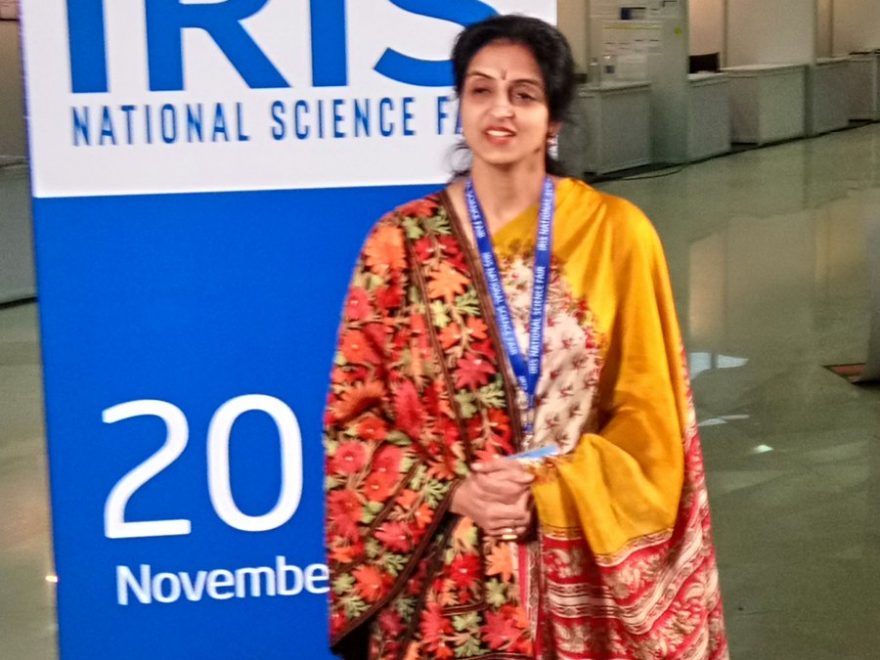“Children must be taught how to think, not what to think” proclaimed the renowned cultural anthropologist Margaret Mead on mentoring the younger populace. The Initiative for Research and Innovation in Science (IRIS) is acting on it. IRIS is an exemplary Public-Private Partnership initiative organized with a nationwide spread by Intel Education, Department of Science and Technology, Government of India (DST) and the Indo-US Science & Technology Forum (IUSSTF) intended for STEM (Science, Technology, Engineering and Mathematics) popularization and encouraging scientific temper among youth. The program focuses on fostering the spirit of innovation among school students from class 5 to class 12. Outstanding young innovators are provided platforms to compete at diverse levels (regional, national and international) and appropriately rewarded.
Every year thousands of students from all over India partake in the IRIS National Fair which began as the Intel Science Talent and Discovery Fair in 1999 with the purpose of cultivating the spirit of innovation among school students in India. The website of IRIS National Fair (www.irisnationalfair.org/about-us/) lists the threefold aim of the fair as follows:
- To infuse the spirit of discovery in school children,
- Increase their interest in science and technology, and
- Build a robust scientific temper among the youth of the country.
The website also shows the Annual IRIS Cycle that traces the complete process beginning with the receipt of project entries in August each year and ends in May the following year with the Intel International Science and Engineering Fair (IISEF), which claims to be the world’s largest international pre-college science competition. You can find more details on Intel ISEF at https://student.societyforscience.org/intel-isef.
I have been associated with IRIS as a mentor and evaluator since 2016. This year’s fair (IRIS 2017) received 1050 online entries from students who participated as individuals and in groups. Participation was seen from sixteen Indian states and UTs with the largest number of students hailing from the National Capital Territory of Delhi. Most entries received were in Computer Sciences. Seventy projects were selected to be displayed at the final event held at the Sam Manekshaw Centre from 16th-18th November 2017 in Delhi.
I had the opportunity to mentor a project titled “Fabrication of highly specific genosensor for the detection of pathogenic E. coli using uniquely designed molecular tag from 16 s rRNA gene” at the second coaching camp held this year at IISER Pune on 3rd and 4th February 2018. The student I am mentoring is in the 10th standard at a School in Delhi and has an impressive scientific bent of mind for his age. He posed very stimulating questions that not only include understanding the basic biology of the underlying mechanism to identify the pathogenic bacteria, but also where this knowledge could be applied to in our day-to-day life.
 At the mentoring workshop
At the mentoring workshop
He plans to exploit this knowledge for application in the field of food technology to keep a quality check on preserved food with long shelf lives.

